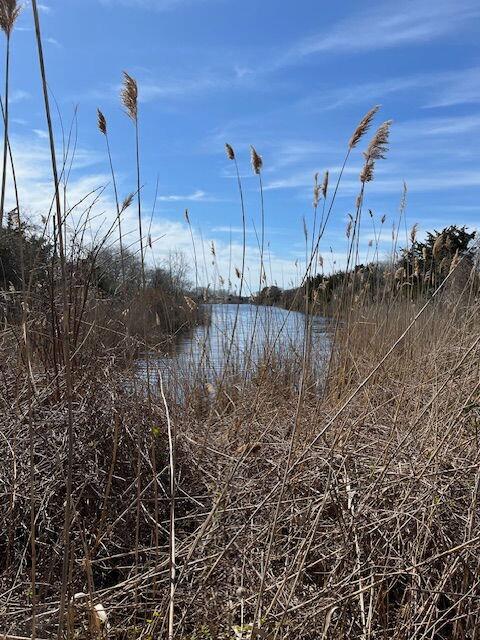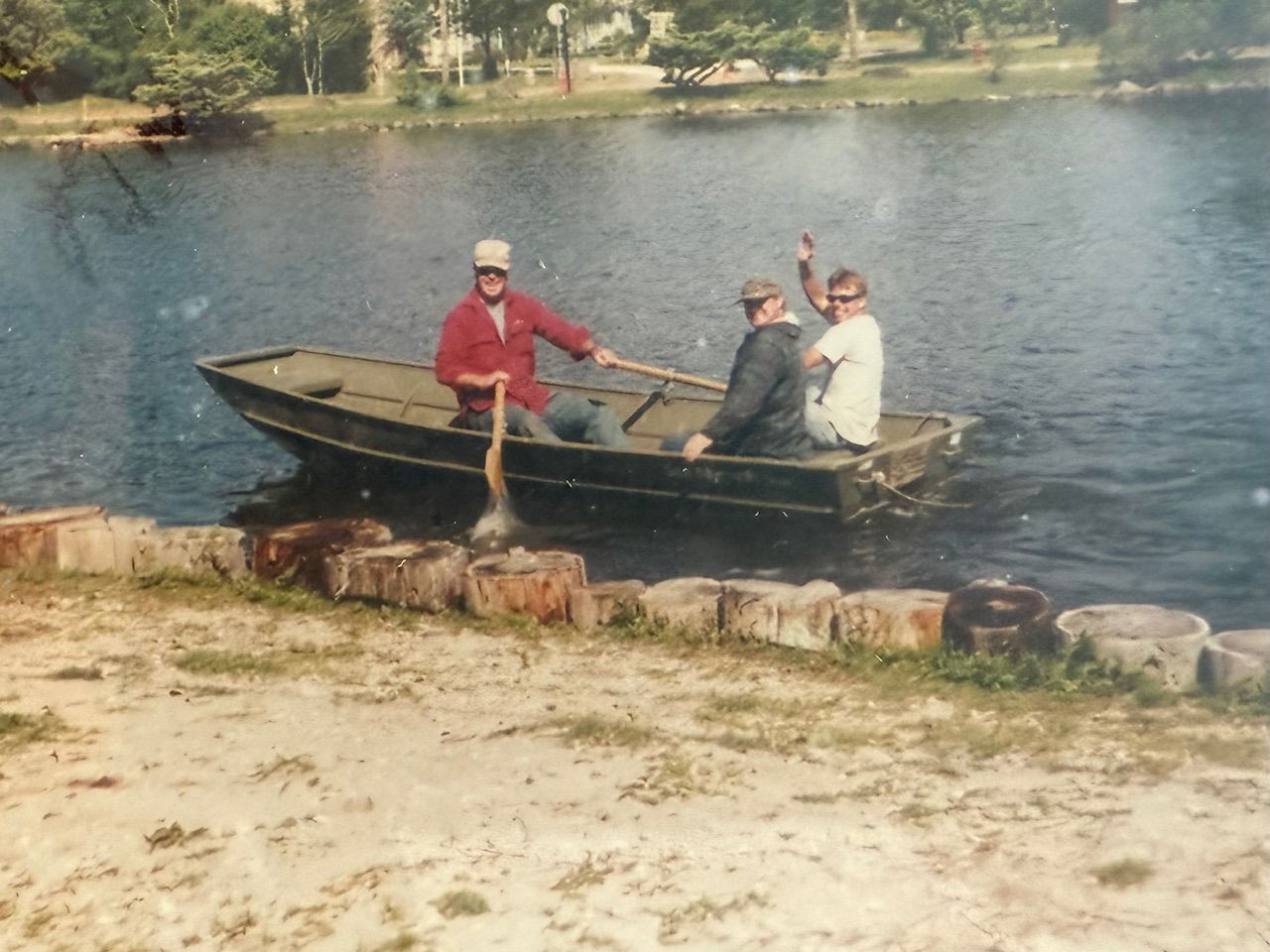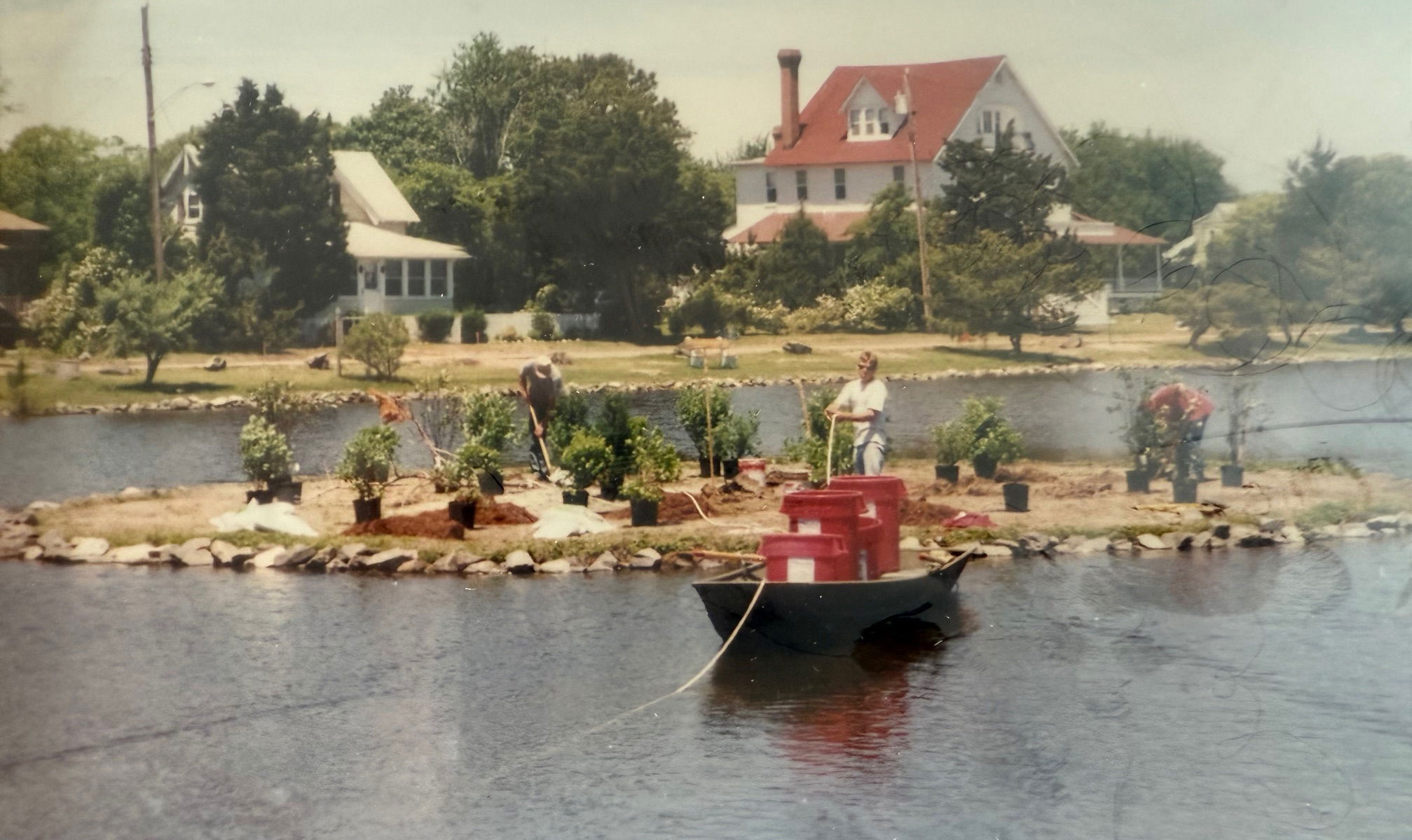Lake Lily Island Restoration & Invasive Growth Control Efforts

December 12, 2025
We are pleased to share the news of the restoration of the Island in Lake Lily along with the aquatic weed treatment. The Friends of Lake Lily and The Cape May Point Taxpayers Association have promised a grant for the Borough to accomplish this starting in 2026.
In 2026, the Borough of Cape May Point will be placing aquatic mats on the floor of the lake at the south end, near the island. These mats will not allow sunlight to reach the invasive vegetation on the bottom of the lake that exists today, and not allow growth of new vegetation next spring. This mat system on not harmful to any turtles, fish or other wildlife in and around the lake. This is an effort to reduce the invasive plant growth and enhance the health of the lake.
In addition to the mats, the Island will be cleared of all invasive and exiting plants & trees, This will allow for all new native plantings and ongoing maintenance of the Island moving forward. As noted, we, Friends of Lake Lily, along with the Taxpayers Association have presented monies for this project. We are looking to continue this project with the borough over the next several years and beyond this restoration project. Your donations are appreciated and will directly benefit Lake Lily and its natural beauty and wildlife.
Again the Friends for Lake Lily wish to thank the Cape May Point Taxpayers Association for their gift to the Borough for this project. We continue to work with all of the local groups and volunteers to keep Lake Lily a pristine environment for our wildlife and visitors.
--------------------------------------------------------------
Last restored by Steve Church and his Dad in the early 1990's, here are a few photos of the work. We hope to bring back the Island and Lake to its grand posture as a centerpiece of Cape May Point.


